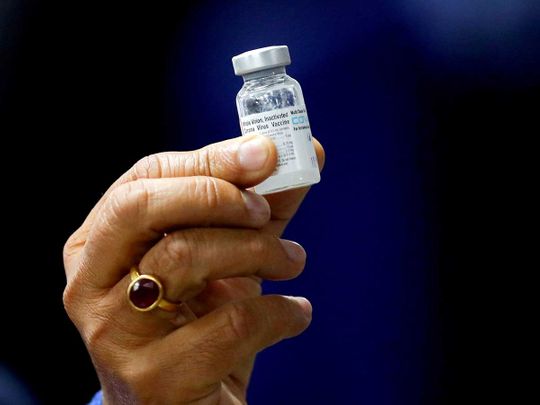
Bengaluru: Bharat Biotech’s vaccine showed 81% efficacy in preventing symptomatic COVID-19 in an interim analysis of a late-stage trial in India, it said on Wednesday, a major boost for the shot shunned by some health workers due to a lack of such data.
The positive result also brightens prospects for sales overseas, with the vaccine, India’s first successful home-made COVID-19 jab, already attracting interest from more than 40 countries, according to the Hyderabad-based firm.
“COVAXIN demonstrates high clinical efficacy trend against COVID-19 but also significant immunogenicity against the rapidly emerging variants,” Bharat Biotech Chairman Krishna Ella said in a statement, referring to its vaccine.
It said the analysis is based on 43 cases of COVID-19 patients who showed symptoms ranging from mild to moderate and severe, and of the total cases, 36 were from a placebo group, while seven cases were from those who received the vaccine.
The results come as India struggles to convince its health and front-line workers to take the Bharat’s shot, which was approved in January without late-stage efficacy data.
Only about 11% of the more than 10 million Indians vaccinated had taken the Bharat Biotech shot as of last week, Reuters had reported.
Many politicians in India, including Prime Minister Narendra Modi, have been inoculated with COVAXIN this week instead of a rival one developed by AstraZeneca Plc and Oxford University, as they seek to boost confidence in the locally developed vaccine.
With more than 11 million infections so far, India is battling the world’s largest COVID-19 outbreak outside the United States.
Bharat, which signed a deal with Brazil to supply 20 million doses of the shot, said next interim analysis will target 87 cases and the final analysis will be based on 130 cases.
Its first interim analysis was based on a Phase III clinical trial involving 25,800 participants which was conducted with the Indian government’s medical research body. The trial included 2,433 participants who were older than 60, and 4,500 participants with co-morbidities.








